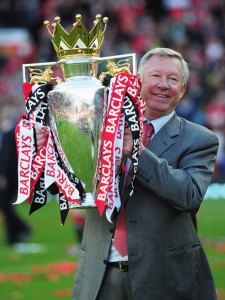I’m excited to launch the “Find Insights Via Engaging™ (F.I.V.E) Questions with an Entrepreneur” series. The series will feature answers to 5 unique questions posed to an entrepreneur. Their answers will enable every reader to learn how they got started in their venture, discover how they mastered their unique set of skills, and gain from any piece of advice that has continued to deliver dividends. It will be fun, insightful, and inspiring. The goal is that you are able to take at least one actionable tip from each conversation.
My first conversation is with David McMenomey, Digital Strategist at Redemit One.
1. Briefly describe how you got started and what is the most exciting or rewarding aspect of what you do?
It was early 2012 and my very pregnant wife was at the store getting groceries for the week. I received a phone call that no one wants to get, the kind of call that stops your heart. “David, I am in the line to check out and none of our credit cards are working. Do you know what is going on?” You see at this point, I had been nursing along a startup that had zero revenue for 8 months, in the heart of the Silicon Valley. Every credit card was maxed and we had a baby on the way in a few short months. To say I was desperate would be an understatement…
The one thing I did right while starting my first company was I focused on the digital side of the business. I knew that growing a business online would be better than going door to door as I had done to start my career. So I started devouring Internet marketing training for hours on end, reprogramming the way I thought about marketing and scalability. The 2 trainers I had been listening to were Jeff Usner and Hans Johnson and you will never guess who called me just about a week after we hit rock bottom financially…Jeff Usner. I had met him a few times at some business training / personal development events but didn’t even know he remembered me. He offered me a job in Texas and I took it.
This was the start of my career in the Internet, but I started at the bottom making almost no money. To me it didn’t matter, anything was better than what I was making with what I was currently doing, and I would get to learn the skill I passionately wanted to learn, Internet Marketing.
I worked with Jeff for 3½ years and created multiple online products, marketing funnels, and web properties that made millions of dollars. I received hands on experience, and built valuable confidence and belief in my abilities to take an idea and bring it to life online.
In October of 2015 I was laid off from my work with Jeff’s company as they moved out of Texas and back east to Pennsylvania. After a few months of consulting for companies, I decided to launch my own agency, Redemit One. It was one consulting client who pushed me over the edge to go from floundering consultant, to full-fledged marketing agency. This client, Manny, was a non-profit who had a vision to help kids coping with cancer feel like rockstars for a day. Manny had some great material on coping with cancer, and wanted me to create a marketing funnel to promote it. So I sat down with him and created a lead generation funnel that could not only help more cancer patients, but also bring in new and reliable donors to fund his charity.
This is the type of work that keeps me going. I love taking an existing business and creating a way for them to have predictable, scalable revenue. There is so much misinformation out there about getting rich on the Internet, and I like going in implementing simple, proven strategies that drive revenue. That is what excites me. Creating something like this for a client, then handing them the keys to the system and letting them run with it. I don’t want to be the company that creates a system that is dependent on Redemit One. I want my clients to be able to walk away from me at any point and continue to grow their vision and company. As short-sighted as that may sound, my client’s businesses were never mine to start with, so why should I hold them ransom just because I help them grow revenue in a new area?
2. Flash back and then fast forward to the present, what has surprised you the most about mastering your unique set of skills and what advice do you have for others looking to learn a similar skill?
I think the most surprising part of looking back at my journey in this business is how simple what I do really is. With all of the complex training and courses out there, it is easy to get bogged down and never actually do anything online. The key to learning this skill set is something Jeff taught me, find what works and copy that. You always want to emulate success. There are other smarter, more patient people out there who have tested and perfected a business model Online, so find out what they are doing and do your best to copy that.
3. What is your unfair advantage?
My clients will tell you that my unfair advantage is that I have already been there. I have done it. I know how it looks to start with an idea and turn it into scalable revenue, so every project I take on, I have the end in mind for the client. I also never sell them on their own idea. Most new prospective client meetings are me telling them why their idea won’t work and how a few minor tweaks in their perspective will make all the difference. To me, if the idea doesn’t produce recurring revenue for the client, I will not take the project. It is not worth it for anyone…
4. Describe the results a potential client could expect when they do business with you and how do you plan to WOW them?
The result a client will see when they work with Redemit One is a revenue machine will be created. They will get a completed mechanism that brings them new leads and converts those leads into money. Pretty simple really. I specialize in lead generation, and that really is the heartbeat of what makes clients happy. They are flooded with new leads who convert to cash. That will motivate any business owner to refer Redemit One. I think what wows clients is that I am not afraid to walk away from taking their business. If I can see at the start that the project is not going to produce results of the client, I am happy to walk away from the money upfront and point them in a different direction, or to a different company for the work. The only thing worse than no clients, is unsuccessful ones…
5. What is the best advice (or quote or insight) you received that gave you the confidence to launch your business?
The best insight I was given to launch my company came from 2 different clients on the same day. I was waffling between the idea of going back to work for a big company and continuing to hone my skills and the idea of staying on my own. Both clients challenged me and asked, “With the skill set that you have and all that you know how to do, how could you go back to work for anyone knowing they could never pay you what you are worth?” The advice I would give any entrepreneur looking to going out on their own is this, never let your ego get in the way of your journey. You have to be able to take an honest step back and evaluate whether you need to continue developing your skill by working for someone, or if you really have all the right pieces to be your own boss.
“Never let your ego get in the way of your journey.” – David McMenomey
Connect with David on LinkedIn.







